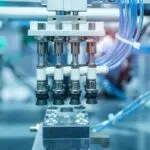International Donor Conception Awareness Day, observed on April 27, aims to bring attention to families formed in a variety of ways as a result of medical infertility, genetic abnormalities, childhood or young adult cancer, and other factors. It is celebrated to remove the stigma and secrecy surrounding egg and sperm donation and conception. It also helps in creating awareness about the challenges and dilemmas regarding assisted reproductive technology and the expectable tensions between positive and negative feelings that can arise during this journey.
History of International Donor Conception Awareness Day
A donor child is conceived by the donation of sperm, eggs, or embryos from two or more individuals or a couple. The biological parent(s) who “donated” sperm or eggs are not legally acknowledged as parents and do not appear on the donor-conceived person’s birth certificate. In many nations, donor-conceived persons are given no identifying information about their donors. Nonetheless, anonymous sperm and/or egg donation has been made illegal in several countries due to concerns about donor-conceived people’s medical and emotional needs.
The history of donor conception goes as far back as 1322. The Arabic people were the first to effectively utilize artificial insemination, then known as A.I., on mares. Unofficial stories indicate that Henry IV, dubbed “The Impotent,” attempted to artificially inseminate a woman for the first time in 1574. Dr. John Hunter, an English physician, was the first to try the A.I. method of conception on a human being in 1799. Dr. Hunter had demonstrated that artificial insemination in humans was possible.
Dr. J. Marion Sims of North Carolina completed a series of 55 inseminations with different degrees of success in 1866, and the practice spread to the United States. Around 1884, Dr. William Pancoast of Jefferson Medical College in Philadelphia performed the first known artificial insemination or donor conception in a medical facility. The fact that the sperm came from a donor was not disclosed to the patients who were being inseminated.
International Donor Conception Awareness Day timeline
The Arabic people are the first to effectively utilize artificial insemination, then known as A.I., on mares.
Donor conception practice spreads to the United States.
The first known artificial insemination or donor conception is carried out in a medical facility.
Jana Ruonow and 20 other partners worldwide dedicate April 27 as International Donor Conception Awareness Day.
International Donor Conception Awareness Day FAQs
Does the donor's blood affect the I.V.F. process?
No, the blood type of the donor has no bearing on the I.V.F. cycle’s outcome or the child’s health.
Is egg donation an unpleasant procedure?
The procedure for egg donation is generally painless and safe.
How many embryos can be transferred from donor cycles?
Generally, doctors recommend that one or two embryos be transferred from donor cycles.
How to Observe International Donor Conception Awareness Day
Read about donor conception
To learn more about donor conception, go to “donorconceptionawarenessday.com.” Over there you can find articles on how it all began and progressed to where it is now.
Spread the word on social media
You can participate by posting about this day on your social media profiles. Raising awareness about donor conception can dispel many people’s doubts and prejudices regarding it.
Listen to Jana Rupnow's podcast
Do check out Jana Rupnow’s special podcast, “Three Makes Baby,” which discusses fertility, family, and genetics. She is not only one of the day’s founders but is also a fertility, donor conception, and adoption psychotherapist.
5 Interesting Facts About Sperm And Egg Donation
There’s no need for anonymity
Donors of eggs or sperm can be anonymous or someone you know.
I.V.F. involves hormonal medication
For the I.V.F. process, the patient needs to take drugs to encourage ovulation and the production of numerous eggs.
Beat the odds
Intrauterine insemination, a type of artificial insemination, has a success rate of 15 to 20% per menstrual cycle.
A chance to make a family
According to a survey, 50% of I.V.F. operations in women aged 35 and under resulted in a birth.
Egg quality matters
Only the healthiest eggs are used for fertilization.
Why International Donor Conception Awareness Day is Important
It alleviates donor conception stigmatization
It allows families to open up about donor conception and realize they aren't alone. Having a day specially dedicated to this subject legitimizes the issue and removes the stigma and secrecy around donor conception.
It helps to promote awareness
This day is dedicated to increasing awareness about the experiences of people who were conceived through a donor. It also contributes to a greater understanding of L.G.B.T.Q. family formation.
It clarifies the rights of donors
The day promotes awareness of egg and sperm donors’ right to proper medical information. It also emphasizes the significance of medical education regarding how their donation affects the lives of donor-conceived individuals.
International Donor Conception Awareness Day dates
| Year | Date | Day |
|---|---|---|
| 2026 | April 27 | Monday |
| 2027 | April 27 | Tuesday |
| 2028 | April 27 | Thursday |
| 2029 | April 27 | Friday |
| 2030 | April 27 | Saturday |




























